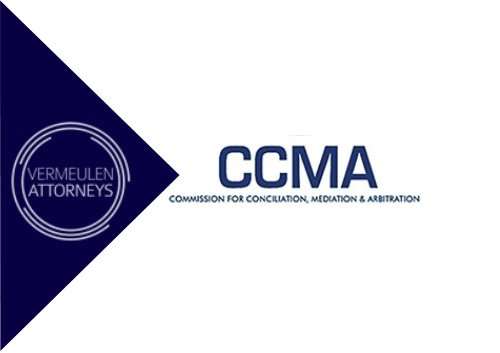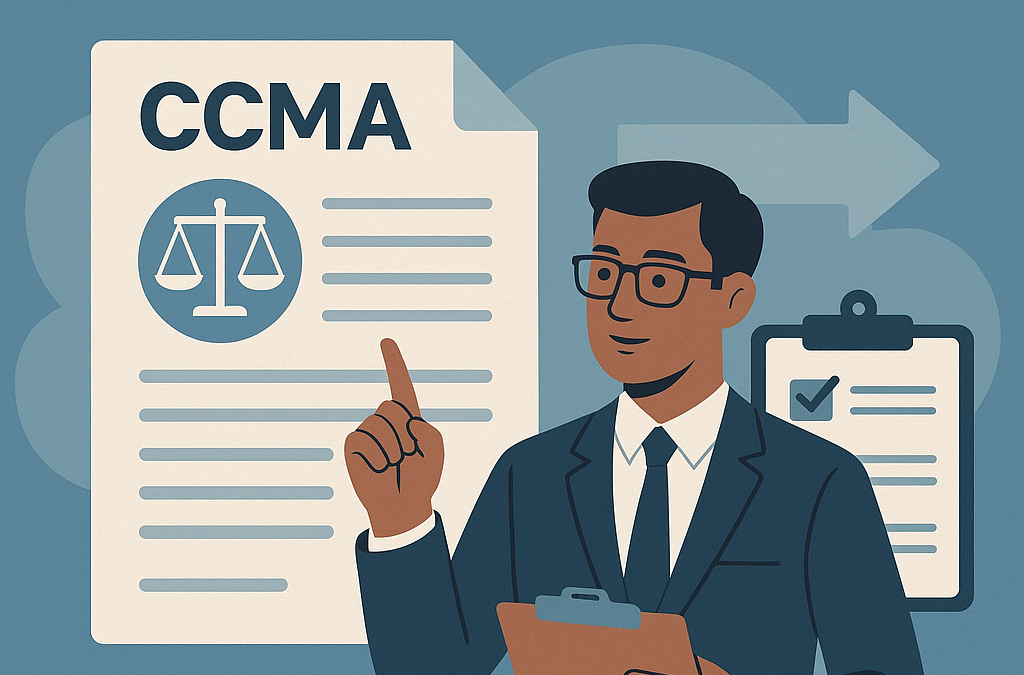It is always best to consult an attorney regarding legal representation at the CCMA when proceeding. A party wishing to attend the CCMA must ensure that they are well informed of their matter.
The CCMA is an institution which follows its own rules and guidelines. This means, that the CCMA deals with various matters and that they are bound by the rules of the CCMA and Labour relations act. In certain instances, legal representation is not allowed by the CCMA. To better understand this concept it is important to know what legal representation is and what it is all about.
What is legal representation?
Legal representation is when an attorney with the right of appearance in the High Court, and who practices as an attorney, is allowed to represent a client. In this instance, it would be to represent an employer or the employee at the CCMA.
In terms of the Constitution of the Republic of South Africa, each and every person has the right to representation.
How are representations dealt with?
In conciliation:
In a conciliation, an attorney is not allowed to represent his or her client. The reason for this is that the conciliation stage is where both parties try to resolve the dispute between them. The conciliation stage is not recorded and is all completely without prejudice. This means that a party cannot use what was said at conciliation at a later stage at the CCMA.
The arbitration:
During the arbitration proceedings, attorneys will be allowed in certain circumstances. Legal representation of the CCMA is governed by Rule 25 of the CCMA Rules.
Rule 25 stipulates certain instances where legal representation is not automatically allowed. This will be discussed briefly, to better understand what rule 25 is about.
1. The nature of the questions of law raised: In a broad sense this will be whether the matter was procedurally and substantively unfair.
2. The complexity of the matter: This would depend on the reason for the dismissal and whether it can be related to misconduct. A matter becomes quite complex when witnesses and expert witnesses are called to testify and large volumes of documents are exchanged.
3. The public interest: Although we acknowledge that the CCMA should not be over legalistic in making its decision whether to allow a legal representative or not, the CCMA will always bear in mind that the Constitution provides for legal representation and they do not lightly refuse a legal representation.
4. The comparative ability of the applicant and the respondent: When a commissioner compares the ability of the applicant and the respondent to deal with their cases in a sufficient manner. If the commissioner feels that the applicant or the respondent will not be able to deal with his or her case sufficiently the commissioner will rule that legal representation is allowed.
In which instances are legal representation not automatically allowed?
Legal representation is not automatically allowed in misconduct and incapacity matters. An attorney wishing to represent his or her client at the CCMA must apply to the commission to be allowed to represent his or her client.
Legal representation can be applied by way of notice together with an affidavit prior to the arbitration hearing taking place. The legal representative can also apply on the date of hearing orally to the commission to be allowed to represent his or her client.
Consent:
If the applicant and the respondent agree that either party may have a legal presentation the commission will not refuse it.
This means that the matter will be dealt with by the commission during arbitration proceedings and both parties can have legal representation. The problem would merely exist if the respondent and the applicant do not agree to legal representation to be allowed.
It is important for attorneys to be fully prepared when arguing Legal representation. The attorney should know the facts of the matter fully and must be able to represent its case to the commission. If an attorney is not allowed in the arbitration proceedings, the applicant or the respondent would have to present the case by themselves.
If the commissioner refuses legal representation and the aggrieved party feels that he should not have refused legal representation, the aggrieved party may take the matter on review.
It is very important to ensure that when legal representation is dealt with at the CCMA that it is recorded. The commissioner will always provide a ruling on paper if he finds that legal representation is not allowed.












